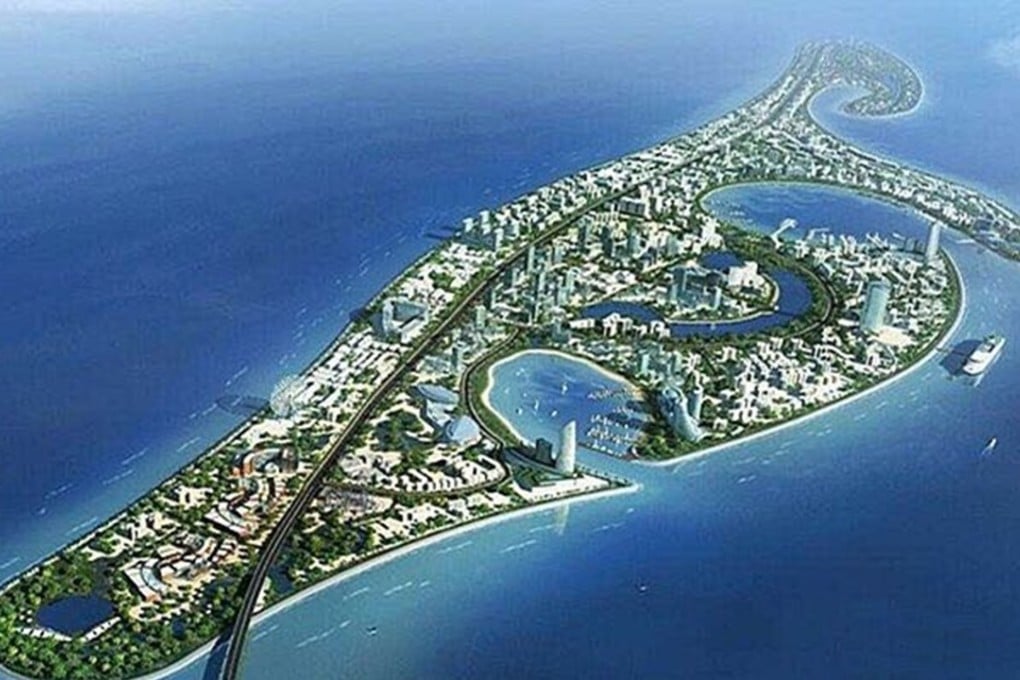China’s 100,000 property developers are bracing for an industry shakeout as economic growth sputters
- Ruyi Island in Hainan province offers a glimpse of the shakeout that China’s 100,000 developers must brace for

The marketing materials for Ruyi Island, a man-made chunk of land about three miles (five kilometres) northeast of the capital of China’s Hainan province, depict a utopia for the wealthy. An artist’s impression shows families strolling along marina boardwalks strung with fairy lights and villas nestled around palm tree-lined lagoons.
In reality, Ruyi Island - five years after construction started - remains a huge sand bank, a few cranes sitting idle. Its developer, Beijing-based Zhonghong Holding, is in the process of selling, or at least trying to sell, the 13 billion yuan (US$1.9 billion) project to a competitor after burning through cash and piling up debt.
Ruyi Island offers a glimpse of the convulsions shaking China’s more than 100,000 developers, who rushed to capitalise on friendly government policies, insatiable housing demand and a near-limitless supply of cheap debt in recent years.
With the government now prioritising keeping corporate China’s mountain of debt in check, the industry finds itself in the early innings of an epic shakeout.
Making matters worse, local authorities in parts of China are starting to dismantle a system where developers collect cash from buyers long in advance of finishing their homes, potentially robbing them of a major funding channel.
“If scrapping the pre-sales system takes shape, that will speed up the consolidation wave,” said Zhao Ke, property analyst at China Merchants Securities. “It’ll be survival of the fittest.”